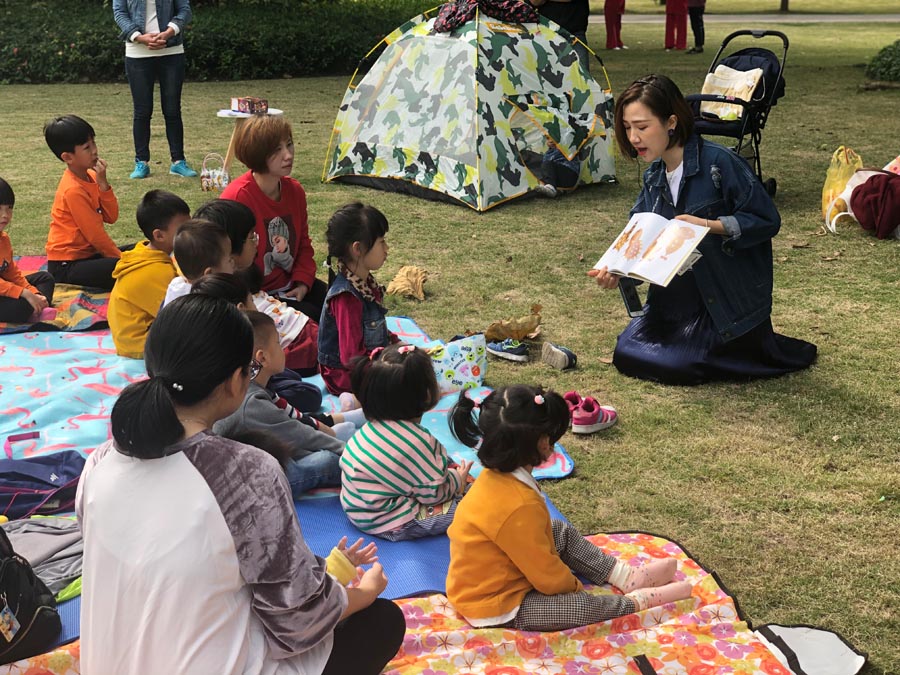Reading for better life


"In some good primary schools in Foshan, grade-three students can finish reading 15 books a year and, in some cases, even more. But, in poor areas, grade-six students barely know 1,800 Chinese characters, which they may not understand when used in texts," Wu says.
In the long term, those who don't read regularly usually have poor comprehension skills, which will influence their understanding of math, history and biology, he says.
As a result, 99 percent of the children in the countryside will go to work after finishing middle school, he says.
"If they can take up reading as a habit or a hobby, they can benefit more. They can read in their free time rather than watching TikTok on their phones," he says, adding "if they have kids, they will also buy books for them".
Wu, who was born and grew up in the countryside, started reading novels extensively in college.
"What's best about reading is that one can experience the different lives portrayed in the novels," he says.
Now he focuses on picture books and science as he volunteers to teach children how to read.
Library program
In September, Wu registered at Foshan Library as a member of the N-Library program, which also seeks to help children in poor areas. Launched in 2018, the program has been inviting ordinary families to build small "neighborhood libraries" at home that allow relatives and friends to borrow books. When approved, a family can borrow 200 books from the public library in Foshan and keep them for one year.
"In this way, public resources can be better used by citizens," says Zhang Meng, an associate librarian at Foshan Library.
So far, more than 1,130 families have registered for the program. Apart from the lending services, families are also required to host various kinds of activities. One of the "neighborhood libraries" regularly hosts activities according to seasons, with themes of poetry and gourmet cooking, inviting kids to their homes to make dumplings.
Foshan, an important manufacturing hub, has been developed quickly over the last 40 years. In 2019, the local GDP surpassed 1 trillion yuan ($153 billion).
To better meet people's needs, the local government has been attaching importance to the development of public libraries.
Since 2004, Foshan has been building a public library service network and, in 2015, it started a library alliance project led by Foshan Library. So far, 342 public libraries have joined the alliance, meaning that, on average, 24,000 people in Foshan share one public library, exceeding the goal of one library for every 30,000 people set by the International Federation of Library Associations.
























